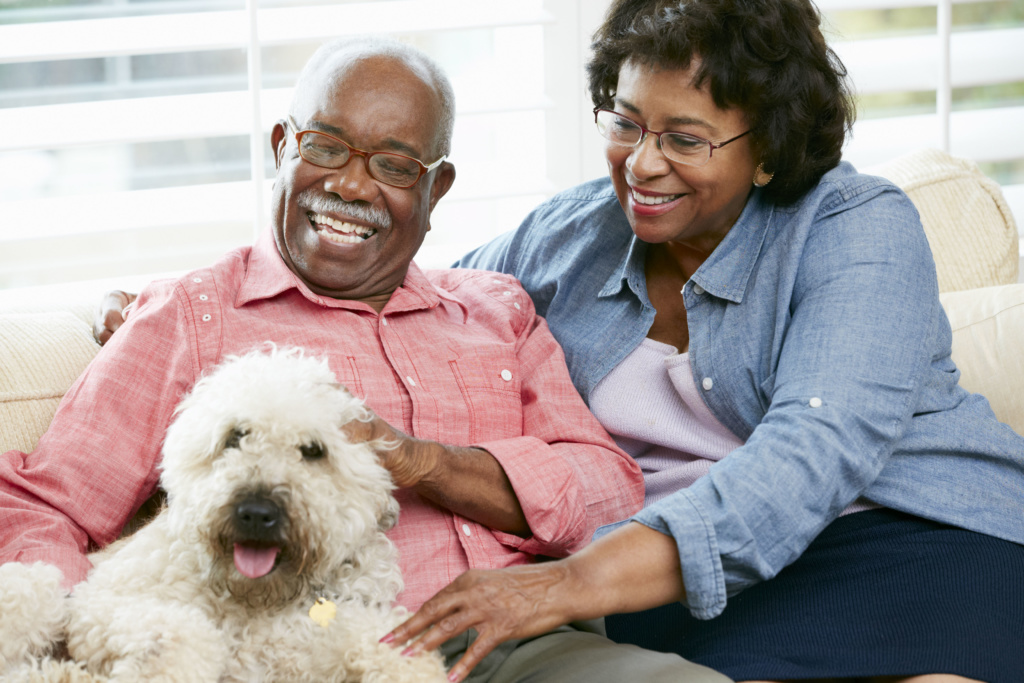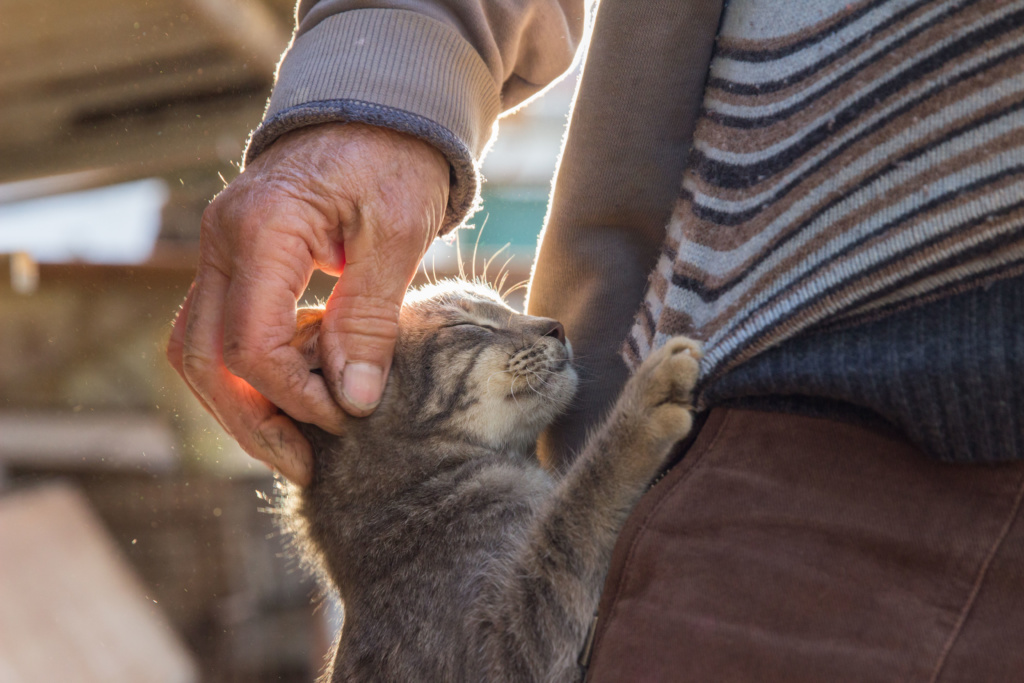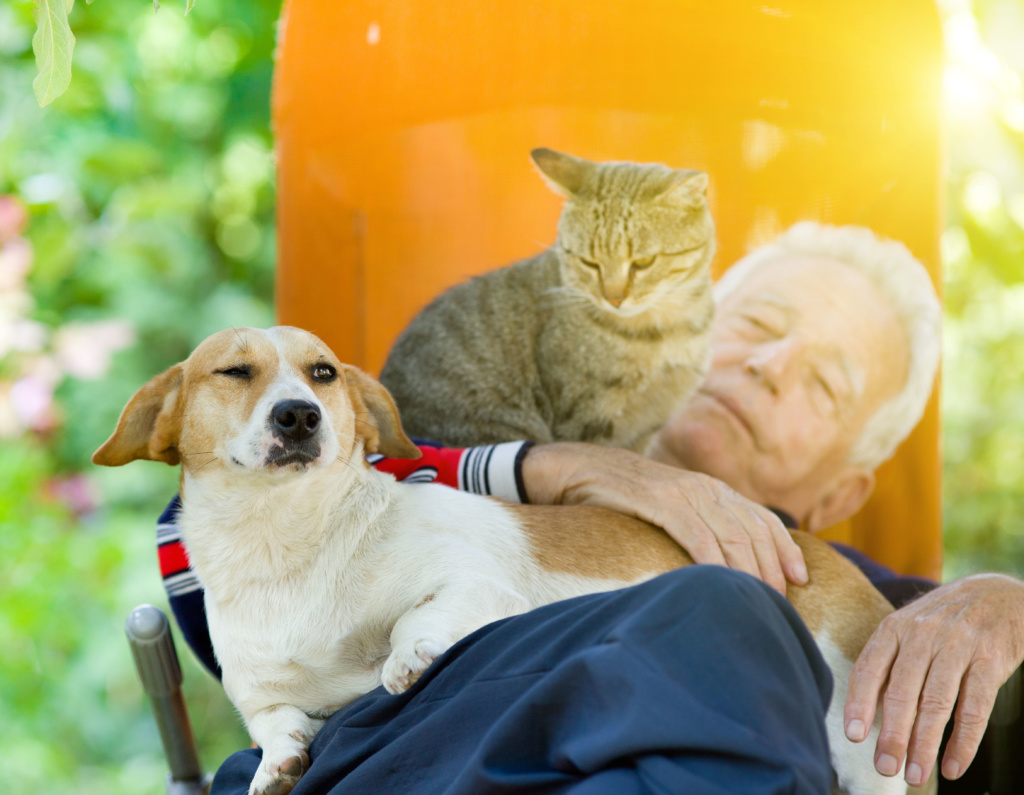Let’s Grow Old Together, Furry Friend
By Lisa Iannucci, CTW Features
Research suggests cognitive and mood-related benefits for pet owners. Here’s a look at the benefits and challenges of caring for pets as you age
Sueann McIntyre said that she is owned by three cats – Jazmine, Milo the Magnificent and Herself the Elf. “They most definitely give me a reason to get up in the morning,” said the 71-year-old from Shelby, Ohio.
McIntyre is enjoying the physical and emotional benefits of owning a pet. “Seniors who are in proximity to pets or own a pet have an increase in serotonin,” says Harrison Forbes, celebrity pet expert and author of “Dog Talk” (St. Martin’s Press, 2008). “Serotonin is the feel-good chemical in the brain that gives people pleasure versus pain.”
However, Forbes says loneliness is a bigger issue with seniors and pets can help with the emptiness. “They just feel left out,” he says. “Their friends are dying and maybe their spouse passed away and they are wondering what they are living for. An animal relies on you to survive and gives purpose.”
McIntyre says she loves her fur babies, and they add so much to her life. “They keep me company but in a way more than that. They help me just by being. I talk to them, they meow back. I just love them, they add so much to my day-to-day life.”
“A study by George Mason University showed that 75 percent of seniors over 65 who got a new pet reported an overall improvement in their physical health,” Forbes says. “Eighty-seven percent of seniors saw an increase in positive mood and outlook on life.”
Owning a pet also helps to save on doctor visits. One study by the Human Animal Bond Research Initiative Foundation found the 132.8 million pet owners in the U.S. visit a doctor 0.6 times less than the average non-pet owner, adding up to the savings of $11.37 billion in U.S. health care costs.
Dog, cat or iguana?
What makes the best pet for a senior? “I can’t cuddle with a bird or a fish,” Forbes says. “The serotonin level is not going to be the same as with something that you have to get out and walk and that you talk to and that comes and wags its tail or cuddles with you. A dog or a cat take a lot more energy and effort to take care of, but there’s so much more interaction that goes on.”
Unfortunately, simply having a pet doesn’t guarantee everything will go smoothly. “There’s an increased chance of unintentional neglect if someone is starting to suffer from Alzheimer’s and they forget to feed them or let them outside and don’t remember to let them in,” Forbes says. “You just need to have some sort of safety net/checkup system in place and check on the welfare of the pet.”
Also, Forbes doesn’t recommend a puppy. “Puppies are difficult, going through teething and housebreaking,” he says. “There are plenty of good adult dogs, and cats, that are adoptable.”
Finding the right pet may take some time. “It’s about lifestyle fit,” he says. “If a little dog is under your feet and you have to bend over to pick it up but you have a bad back, that may not be the best choice. On the flip side, if you’re unstable on your feet, a really big dog that’s high energy is going to knock you over and may not be a good choice either. So weigh those out.”
Finances are another consideration. “It costs money to own a pet,” Harrison says. “For example, the cost of ownership of a dog over its lifetime, if you start with a puppy, is about $17,000 over the life of that pet. Well that’s not nothing if you’re on a fixed retirement.”
If you don’t want a pet on a full-time basis, you can consider visiting a rescue or adoption group who need volunteers to house sit a dog. “Come sit in a cattery– a cat room at a facility and play with the cats for a couple of hours a few times a week,” he says. “Seniors can get a lot out of that without having to be a full owner.”
Interestingly, Forbes believes that not everyone is destined to own a Fluffy or Fido. “You really need to think about it and not be guilted into it,” he says. “That’s not good for them or for the pet.”
Owning a pet at any age is an important decision and not to be taken lightly.
© CTW Features


